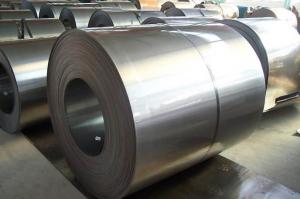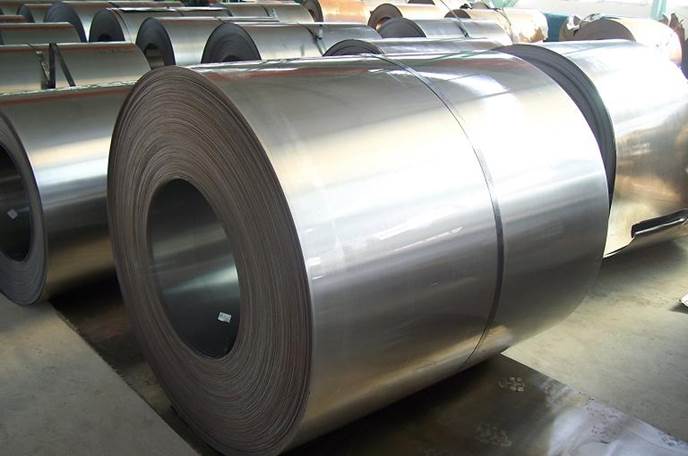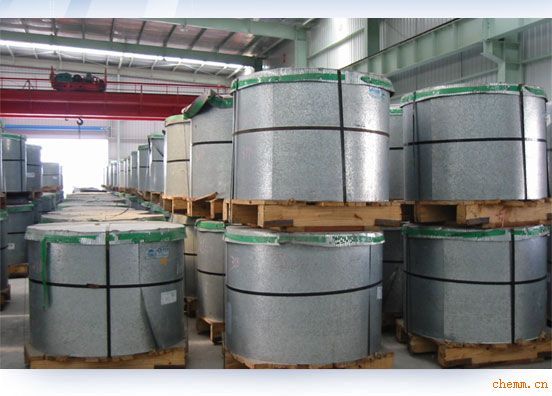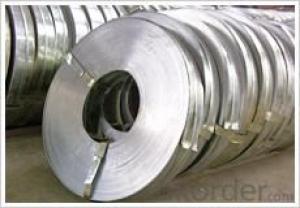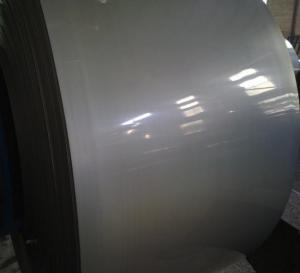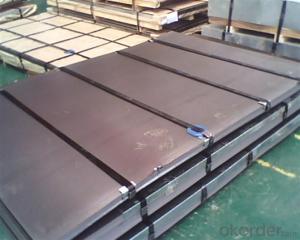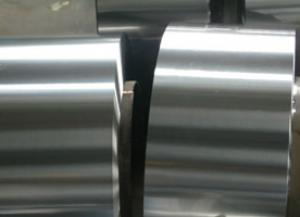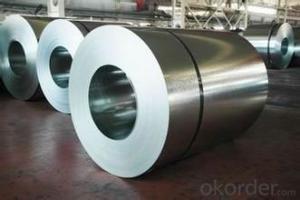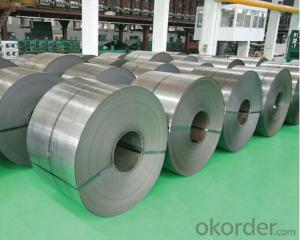Cold Rollled steel coils or sheets
- Loading Port:
- China Main Port
- Payment Terms:
- TT OR LC
- Min Order Qty:
- -
- Supply Capability:
- -
OKorder Service Pledge
OKorder Financial Service
You Might Also Like
Specification
Product Name | Cold Rolled Sheet Coil |
Material | SPCC/SPCD/SPCE/DC01/ST12/ ST14/SPCD/DC03/DC04 ect. |
Grade Standard | JIS G3302, EN10142, ASTM653, ASTM95 |
Thickness | 0.15-3.5mm |
Width | 600mm-1500mm |
Coil ID | 508-610mm |
Coil OD | max 1500mm |
Weight | 3-10 Tons |
Tolerance | Thickness tolerance:+/-0.02mm; Width tolerance:+/-5mm |
Surface | No-skin passed or Skin passed, Tensile leveled |
Surface Treatment | Chromate/Unchromate passivation, fingerprint resistant treatment, oiled/unoiled |
Annual Output | 350,000MT |
Application | Construction, hardware, home applicances, interior decoration |
General Application of Cold Rolled Steel Coil:
Classification | Designation | Characteristics | Main applications |
Commercial quality | SPCC SPCCT | Commercial quality suitable for bending fabrication and simple forming; this is the type in greatest demand. | Refrigerators, cabinets, power distribution baords and drums. |
Drawing quality | SPCD | Drawing quality second only to that of SPCEN. Excellent uniformity. | Automobile floor and roof panels. |
Deep-drawing quality | SPCE SPCF | Deep-drawing quality.With metallurgically controlled grain size, it retains its beautiful finish even after being deep-drawn. | Automobile fenders and quarter panels |
Extra deep-drawing quality | SPCG | Extra-low-carbon steel sheets with highest workability | Automobile internal panels and deep-drawn parts |
- Q: All of my friends say that if a car made of mostly carbon fiber would crash into a full steel car, or vice versa, the steel car would be DESTROYED and the carbon fiber would drive away, if not, easily repairable.
- Depends on the design/construction.
- Q: What are the dimensions of steel coils used in automotive accessory manufacturing?
- The dimensions of steel coils used in automotive accessory manufacturing can vary depending on the specific application and requirements. However, typical dimensions for steel coils used in this industry range from 0.3 mm to 4.0 mm in thickness and from 600 mm to 2000 mm in width. The length of the coil can also vary, but it is commonly around 2000 meters.
- Q: Does anyone know what is 12 gage Cold Rolled Steel meaning? Also, help me to describe it.Thank you so muck ~!Mark Lin
- Steel thickness is measured by gages. 16 gage is approximately 1/16th of an inch. The larger the number (say, 24), the thinner the steel. Steel is made from large metal bars (4'x12', about 8 thick) that pass through presses to get thinner and thinner. If the final stages of rolling are done with pressure and not heat, it is cold rolled. It often gets galvanized to prevent rusting. Hope this helps.
- Q: What is the typical weight of a steel coil?
- The typical weight of a steel coil can vary depending on several factors such as the type of steel, the thickness, and the dimensions of the coil. However, on average, steel coils can range from a few hundred kilograms to several tonnes.
- Q: How long do steel coils last?
- The lifespan of steel coils can vary depending on various factors such as the quality of the steel, the conditions in which they are stored or used, and the specific application for which they are being used. Generally, high-quality steel coils can last for several years to several decades before showing signs of deterioration or wear. However, it is important to note that steel coils can be susceptible to corrosion if not properly maintained or protected from moisture or harsh environmental conditions. Therefore, regular inspection, maintenance, and appropriate storage or usage practices are crucial in maximizing the lifespan of steel coils.
- Q: My boyfriend says he has balls of steel.
- Easy to test. Put a magnet near them. If they attract, then they're made of steel. I'd be willing to bet I'd know what will happen, though! I know you can get metal hip replacements but .........
- Q: What are the different types of steel coil cuts?
- There is a wide range of steel coil cuts utilized in various industries. These cuts are made during the steel manufacturing process to produce steel coils of different sizes and shapes, which can be employed for diverse applications. 1. Slit Coil: Among the most frequently employed steel coil cuts is the slit coil. This process involves cutting a large steel coil into narrower strips or slits. Slit coils are commonly utilized for applications that necessitate smaller widths, such as automotive parts, appliances, and construction materials. 2. Sheet Coil: Another type of steel coil cut is the sheet coil, which entails cutting a large coil into flat sheets. These sheets can be further processed to create different products, like roofing materials, cladding, or fabrication components. 3. Blanked Coil: The blanking process involves cutting a steel coil into custom-shaped blanks. These blanks can be used for various purposes, such as forming into different parts, stamping, or machining. Blanked coils find common usage in industries like automotive, aerospace, and manufacturing. 4. Precision Slit Coil: Precision slit coil is a specialized type of coil cut that involves cutting the steel coil with high precision and accuracy. This process ensures consistent width tolerances throughout the coil, making it suitable for applications that require precise dimensions, such as electrical components, precision tools, and automotive parts. 5. Oscillate Wound Coil: Oscillate wound coil is a unique type of steel coil cut that involves winding the steel strip in a zigzag pattern rather than a traditional flat coil. This method allows for tighter coil winding and maximizes the amount of steel on a coil. Oscillate wound coils are commonly used in industries that require high-volume production, such as stamping and roll forming. In conclusion, the diverse types of steel coil cuts cater to the specific needs of various industries, providing them with the flexibility to create products of different sizes, shapes, and dimensions.
- Q: hey therejust wondering about changing nylon strings to steel strings...i have an acoustic guitar and it has nylon strings, but i was thinking about switching to steel strings, as i think it sounds better.this might sound really stupid... but is that possible? i mean they call it a steel stringed GUITAR and nylon stringed GUITAR, so if i wanted to switch would i have to get a whole new guitar? please help, im reaaally confused!thanks
- I asked my guitar teach this and the thing with changing from nylon strings to steel strings is that the nylon tuning forks are accustomed to nylon and tend to slip. But, in say that you can do it, but, you would have to wait awhile for them to start sticking. If i have helped the Your welcome and Thanks! =]
- Q: How are steel coils used in the manufacturing of industrial equipment?
- Steel coils are commonly used in the manufacturing of industrial equipment due to their versatility and strength. These coils are typically made from high-quality steel and are shaped into a coil form to facilitate easy transportation and storage. One of the primary uses of steel coils in industrial equipment manufacturing is for the fabrication of structural components. These coils are often cut, shaped, and welded to create various parts and structures that provide support and stability to the equipment. For example, steel coils can be used to construct frames, beams, and brackets that form the backbone of heavy machinery. Steel coils are also used in the production of mechanical components such as gears, shafts, and bearings. These components require high strength and durability to withstand the heavy loads and harsh operating conditions encountered in industrial settings. By using steel coils, manufacturers can ensure that these parts have the necessary strength and resilience to perform reliably. Additionally, steel coils are employed in the manufacturing of equipment surfaces that require corrosion resistance or aesthetic appeal. Steel with specific coatings or finishes can be rolled into coils to create sheets or plates that are used to construct outer casings, panels, or covers for industrial equipment. These coatings not only protect the equipment from environmental factors but also enhance its appearance. Furthermore, steel coils can be transformed into pipes and tubes, which are vital components in many industrial applications. These pipes are used to transport various fluids, gases, or materials within the equipment. The strength and structural integrity of steel coils ensure that the pipes can withstand high pressure, temperature, and mechanical stress, making them suitable for demanding industrial environments. In conclusion, steel coils play a crucial role in the manufacturing of industrial equipment. They are used to fabricate structural components, mechanical parts, surface finishes, and pipes. The versatility, strength, and durability of steel coils make them a preferred choice in the industrial equipment manufacturing industry.
- Q: How are steel coils used in the manufacturing of suspension arms?
- Steel coils are used in the manufacturing of suspension arms as they provide the necessary strength and flexibility to absorb shocks and vibrations, ensuring a smooth ride. These coils, known as coil springs, are typically mounted between the suspension arm and the vehicle's chassis, supporting the weight of the vehicle and allowing for controlled movement and suspension travel. By compressing and expanding, steel coils help absorb the impact of bumps and uneven road surfaces, providing stability and improving overall handling and comfort.
Send your message to us
Cold Rollled steel coils or sheets
- Loading Port:
- China Main Port
- Payment Terms:
- TT OR LC
- Min Order Qty:
- -
- Supply Capability:
- -
OKorder Service Pledge
OKorder Financial Service
Similar products
Hot products
Hot Searches
Related keywords
